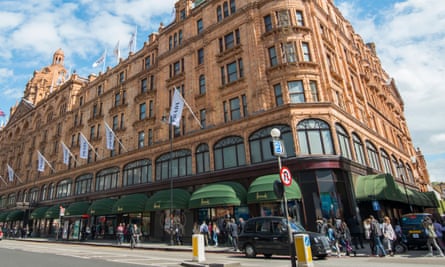Hospitals, colleges and fire stations are likely to face 15%-20% rises in property tax next year while bills will fall at big banks, including the Bank of England, and department stores such as Harrods.
The government on Thursday released details of a revaluation of properties across England and Wales for the calculation of business rates, with many public buildings expected to be among the losers and those in big offices, the largest retail properties and historic hotels among the winners.
Across 1,590 NHS hospitals in both nations the rateable value used to calculate bills will jump by 17.4% to £893.35m, according to analysts at Altus Group, Britain’s largest ratings advisory firm, indicating a potential extra £68m on bills. The valuation will jump by 35%, according to advisory firm Gerald Eve. That indicates nearly an additional £1.6m on its bill alone according to Altus.
Jerry Schurder at Gerald Eve said hospitals, educational establishments and fire stations were likely to face an increase in business rates, as the amount public buildings pay is linked to the current cost of construction, which rose during the pandemic amid materials and labour shortages.
.
He said education establishments were likely to face an almost 15% rise in rates bill and fire stations and health facilities 16%. School bills are covered by central government.
They are among the losers alongside those operating large distribution sheds, such as Amazon, whose bill is expected to rise by 75% at one warehouse in Tilbury, Essex, according to Altus. Supermarkets with food delivery businesses, such as Tesco and Sainsbury’s, are also likely to be hit.
Convenience stores will see their rateable values increase overall by 12.7% while hairdressing and beauty salons are facing a 6.3% rise, Altus calculates.
However, many independent convenience store owners will be protected by measures to protect small businesses, including a special discount for retail and hospitality outlets and for those whose rateable value is less than £15,000, according to Schurder.
 View image in fullscreenHarrods is likely to pay lower business rates next year. Photograph: Tracey Whitefoot/Alamy
View image in fullscreenHarrods is likely to pay lower business rates next year. Photograph: Tracey Whitefoot/Alamy
He said that many high streets and shopping centres would be “big winners” as business rates valuations are based on rents paid and these had dived during the pandemic when many stores were forced to close for several months.
Upmarket department stores Harrods and Selfridges will see their tax bills slump by about £8m each from April next year after the revaluation, which is based on rents paid in 2021 at the time of the pandemic when many central London businesses were struggling with pandemic lockdowns.
skip past newsletter promotion
Sign up to Business Today
Free daily newsletter
Get set for the working day – we’ll point you to all the business news and analysis you need every morning
Enter your email address Enter your email address Sign upPrivacy Notice: Newsletters may contain info about charities, online ads, and content funded by outside parties. For more information see our Privacy Policy. We use Google reCaptcha to protect our website and the Google Privacy Policy and Terms of Service apply.
after newsletter promotion
The largest shops, those over 1,850 metres squared in size, are the biggest retail winners, with their rateable values tumbling by 34.7% on average, according to Altus.
The John Lewis department store chain, for example, will save £5m in business rates on London’s Oxford Street store alone, although its costs elsewhere are on the rise as a result of increases in the legal minimum wage next year and higher national insurance payments.
The drop in market rents in the City, means the Bank of England’s rate bill will fall by 7%, according to Schurder. Banks based in London’s Canary Wharf will also enjoy a cut in their property taxes after the shift to working from home during the pandemic pushed office rents in the area down by an average 1.7%, with some falling far more. The bill at international bank HSBC’s building in Canary Wharf, for example, is calculated to have fallen by almost 7%.
New measures announced by Jeremy Hunt on Thursday mean the drop in the bill will apply in full from next year – whereas previously it would have been phased in jumps of 4% to 5%, meaning that some businesses never saw the full benefit of a cut to their bill.




